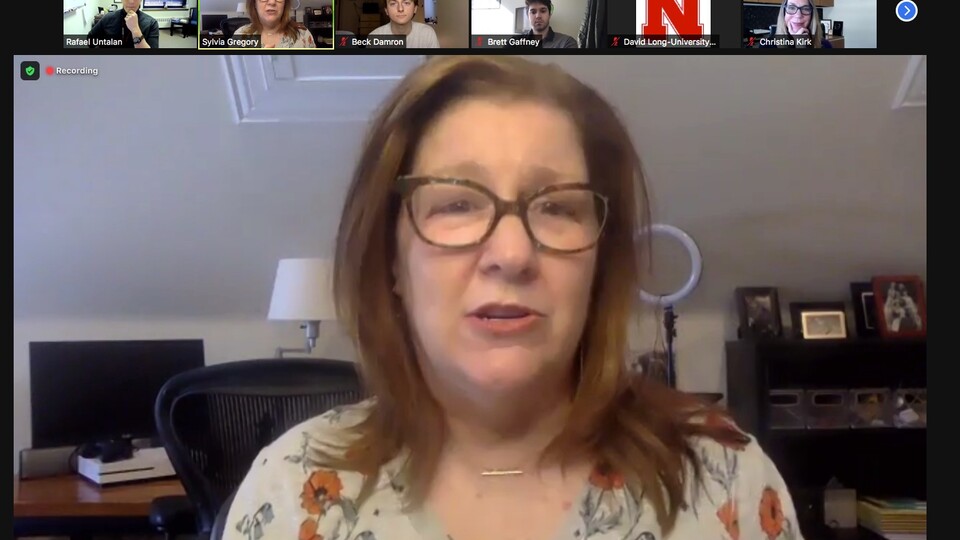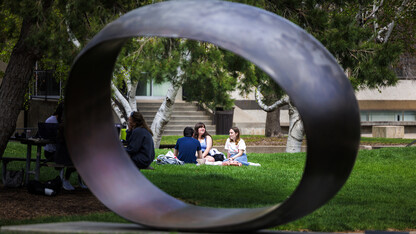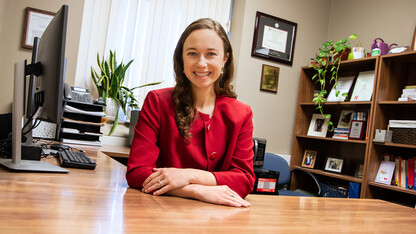· 4 min read
Carson School launches Professional Development Series for performers

The Johnny Carson School of Theatre and Film has launched a series that brings in monthly guest artists who focus on professional development for performance students.
“I created the Professional Development Series to provide our performance majors the opportunity to engage with industry professionals in order to develop a comprehensive understanding of the professional expectations and business practices related to the profession,” said David Long, associate professor of theatre and head of the performance area in the Johnny Carson School of Theatre and Film.
Beck Damron, a senior theatre performance major, said it’s been helpful for students to hear from industry professionals.
“We get the unique chance to hear their perspective on everything,” he said. “I hope to get more knowledge about what’s going on in the real world so I can be more ready to start my career.”
Hannah Mason, a junior theatre performance major, said the students’ training has looked different than usual in the pandemic. The professional development series, she said, is an important part of filling the gaps.
“Since we are now limited in the ways that we can educate ourselves, bringing in current and accomplished professionals from all areas of the film and theatre industry is a great alternative, because we now have the chance to ask these questions that only experts can answer,” Mason said. “Learning about others’ experiences and how they got started is extremely beneficial because it serves as a point of reference for all of the different options I can take in the future. Also, each individual presents their own tips and tricks to make you a better performer, so I want to take advantage of all these educational opportunities to make me more fit for this career.”
The series began Feb. 26 with a virtual casting workshop featuring Sylvia Gregory, who fielded questions from students and answered a recurring question: What do casting directors look for in an audition and a call-back?
Over the past decade, Gregory has cast Screen Actors Guild features and independent short films, video games, commercials, web spots, print ads and ad campaigns for numerous national and regional commercials. She opened her own agency in 2010 and has since cast the episodic films “Encrucijada” for PBS and Univision, which won the Heartland Regional Emmy in 2015.
“She put things into the perspective of the person hiring,” said Michael Zavodny, a senior theatre performance major. “A good example is how every detail and word of a commercial is agonized over by the writer for marketing impact, so it has to be performed precisely as written when you audition. She made it very clear that if you know why the casting director wants specific things, and you can give them that, you are much more likely to get the gig.”
Mason said Gregory’s advice also aligned with what she is learning in her Intermediate Acting II course, which reassured her that the curriculum is up to speed with the modern industry.
The workshops will continue throughout the semester. Next in line is an acting workshop with Jake Robinson and colleagues from New York, including talent manager Laurie Smith and casting director David Caparelliotis. Robinson’s breakthrough came in “The Carrie Diaries,” a dramedy series and prequel to “Sex and the City.”
“He’s a young, successful actor, which is where I hope to be a few years down the road,” Zavodny said. “We’ll have an opportunity to perform scenes in a mock casting call. Getting that kind of professional feedback is an incredible opportunity.”
Mason agreed, saying she aims to take full advantage of the opportunity to network, ask “burning questions” in a supportive environment, and begin making a name for herself. The workshops are also showing and reminding students that the industry consists of more than just actors and technicians, she said.
“Between line producers, camera operators, on-set acting coaches, dramaturges, fight choreographers and more, there are so many opportunities to create a successful career,” Mason said. “Knowing this (makes) the profession significantly less intimidating and emphasizes that there is space for everyone.”







